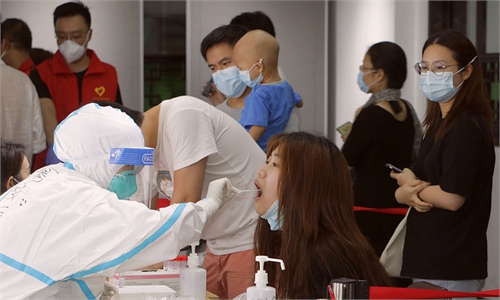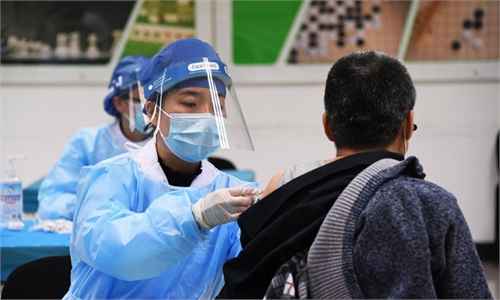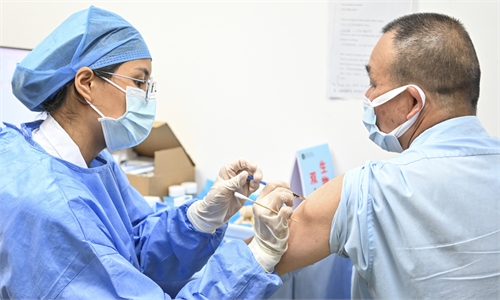Leading expert behind Wuhan's virus fight awarded 2021 Sasakawa Prize by WHO, calls it 'great recognition of Chinese community health workers'
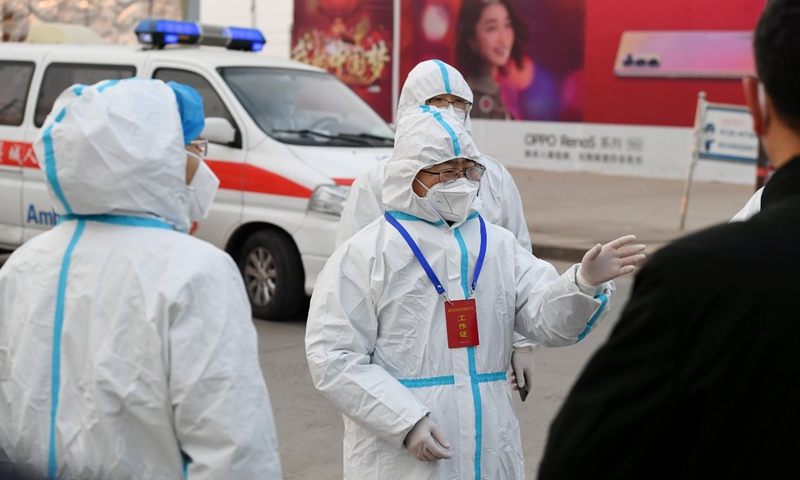
Wu Hao supervises epidemic prevention and control in Shijiazhuang, Hebei in January. Photo: Fangzhuang Community Health Service Center
Wu Hao, head of a community health service center in Beijing and leading expert in community-level disease control during the early fight against COVID-19 in Wuhan, Central China's Hubei Province was recently awarded the 2021 Sasakawa Prize by the WHO during the World Health Assembly in Geneva, Switzerland.
"This is a great inspiration for me, my team. More importantly, it is a great recognition of Chinese community health workers," Wu told the Global Times on Sunday.
"Dr Wu has devoted his career to improving community health and integrating the use of technology to ensure more people can access care close to home," said the WHO in a tweet on Friday. A statuette and a sum of $30,000 will be awarded, according to the WHO website.
Wu, head of the Fangzhuang Health Service Center in Fengtai district, attributed the award to his team, which has spared no efforts in helping people in rural areas access basic medical treatment.
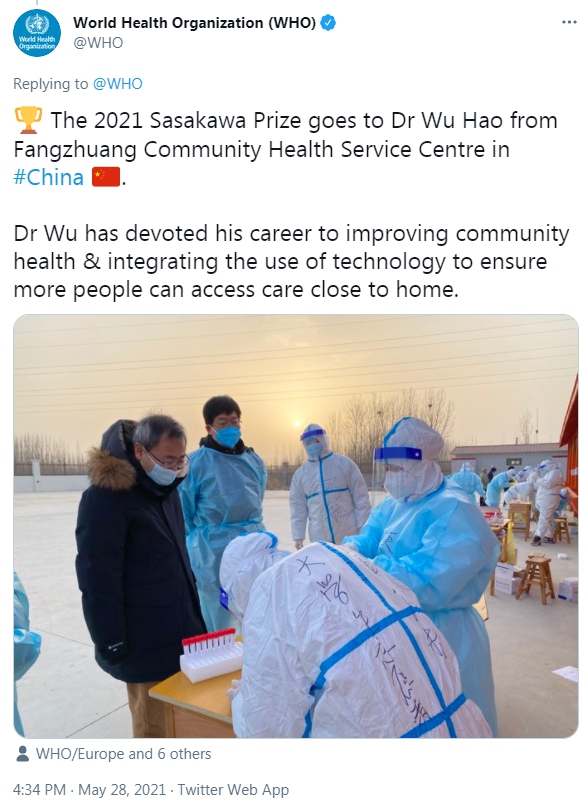
Photo: Screenshot of WHO's tweet
The Sasakawa Prize was established in 1984. Wu is the third Chinese person to win the prize, after Dr. Niu Dongping in 1989 and Dr. Du Xueping in 2010.
One of their distinguished accomplishments is using artificial intelligence (AI) technology to help doctors in villages, counties and residential communities to better diagnose diseases and keep in touch with their patients.
The AI technology he mentioned is a "smart system" that integrates elements like electronic patient health records, feedback from wearable devices that measure vital information such as blood pressure and the use of mobile apps and text messaging and links up other relevant institutions for referrals.
This enables doctors to remotely assess and monitor patients, rank patient conditions, flag priority patients and send reminders and relevant information.
According to the WHO, in the 11 years that Wu has headed the center, its outpatient volume has soared from fewer than 110,000 to 440,000 today. The center, which has just 25 general practitioners and a team of nurses, has transformed the way community health is practiced in the capital region, especially in the management of chronic diseases like hypertension and diabetes.
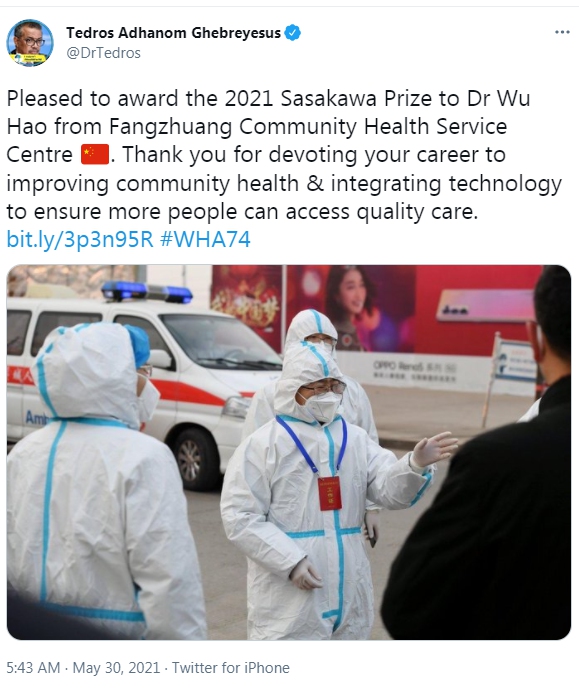
Photo: Screenshot of Tedros Adhanom Ghebreyesus's tweet
Wu also pioneered an intelligent family physician-optimized collaborative concept, an integrated human-centered and information technology-based service for family physicians. His community health service institution was the first to be set up in Beijing.
Wu is known to many people for his contribution during the battle against COVID-19 epidemic in Wuhan in its early days.
In the month after his arrival in Wuhan on the night of February 6, he led his team to visit 258 streets, 485 communities and 136 community health service centers in Wuhan, and submitted nearly 1,000 suggestions on community prevention and control.
"The problems were that local communities did not lock down, their daily waste was not treated in a scientific way, the control measures were not reasonable and the investigation was not complete," Wu said.
Wu was also listed as one of the 1,499 role models in the country's fight against the epidemic on September 8, 2020.

